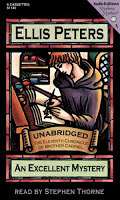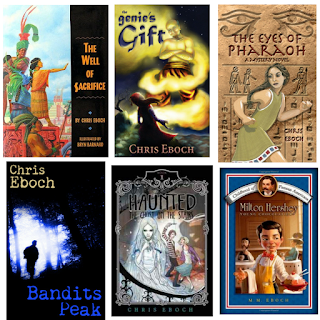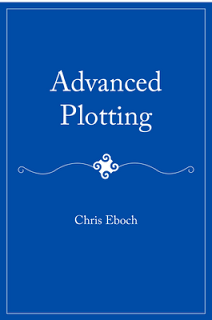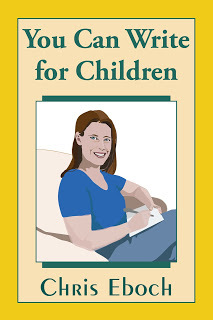Learning to Write by Reading - #amwriting
 Chris writes romantic suspense as Kris BockI'm on a listserv for readers who are interested in mysteries (DorothyL). Someone recently started a discussion: "Is There a Fiction Book that Helped Teach You How to Write?" I thought my answer might make a good blog post, so here it is.
Chris writes romantic suspense as Kris BockI'm on a listserv for readers who are interested in mysteries (DorothyL). Someone recently started a discussion: "Is There a Fiction Book that Helped Teach You How to Write?" I thought my answer might make a good blog post, so here it is.I've learned more about writing mysteries from the books I put down. Why did I lose interest?
Sometimes the answer is obvious in the first pages – poor writing. But in the last year, I've started a number of books and initially been impressed with the writing quality. But then I quit reading after a few chapters. I usually lose interest for one of two reasons:
First: I simply don't care if the main character succeeds in her goal. In a cozy mystery, the amateur detective has no real reason to be investigating. The crime doesn't directly affect her or her family or friends, and/or there's no reason to think the police can't take care of things.
 But it's not enough to make the detective a professional, so it's her job to investigate. The stakes can still feel low if there isn't some reason for me to be interested in seeing this particular crime solved, right now.
But it's not enough to make the detective a professional, so it's her job to investigate. The stakes can still feel low if there isn't some reason for me to be interested in seeing this particular crime solved, right now. That's not to say the stakes have to include the main character being accused of the crime. In the Brother Cadfael books by Ellis Peters, Brother Cadfael cares deeply about justice and protecting the innocent, even people he barely knows. And so, as a reader, I care.
 In a similar vein, I've always enjoyed Elaine Orr's Jolie Gentil Series. Jolie doesn't always have a good *practical* reason to investigate. But she has a burning desire to understand the truth. This is shown through her thoughts and actions, so it feels authentic to her character, not something tacked on by the author as an excuse for unbelievable behavior. To me that's a stronger motive than the surprisingly common "My horrible ex-husband has been accused of a crime, so I guess I have to get involved."
In a similar vein, I've always enjoyed Elaine Orr's Jolie Gentil Series. Jolie doesn't always have a good *practical* reason to investigate. But she has a burning desire to understand the truth. This is shown through her thoughts and actions, so it feels authentic to her character, not something tacked on by the author as an excuse for unbelievable behavior. To me that's a stronger motive than the surprisingly common "My horrible ex-husband has been accused of a crime, so I guess I have to get involved."  Second: Not enough happens. One historical mystery I tried recently started out well, with dramatic action and strong writing. But this was followed by several chapters where the story didn't progress. A couple of new characters were introduced. They talked with the MC about topics that had already been discussed. Nobody had new information. The big mystery was barely acknowledged. The MC hadn't committed to learning more about it yet. Finally I got so bored I gave up. Perhaps things would've picked up again in a few chapters … but by that point, I didn't care enough to wait.
Second: Not enough happens. One historical mystery I tried recently started out well, with dramatic action and strong writing. But this was followed by several chapters where the story didn't progress. A couple of new characters were introduced. They talked with the MC about topics that had already been discussed. Nobody had new information. The big mystery was barely acknowledged. The MC hadn't committed to learning more about it yet. Finally I got so bored I gave up. Perhaps things would've picked up again in a few chapters … but by that point, I didn't care enough to wait.When I critique manuscripts, I often wind up explaining the necessity of having goal-motivation-conflict in every chapter.
 Another way to keep your story moving is to focus on your main character's goal in each scene. Even if we know what the overall goal is (gather warriors in order to battle the monster), remind the reader at the beginning of each scene what the scene goal is – and what the main character has to do to achieve it. You can also remind the reader why it is important (motivation) and why it will be difficult (conflict). This way, the reader is waiting to see if the main character will succeed or fail. It's also a way for you to check that your main character is staying active, and not just tagging along for the ride.
Another way to keep your story moving is to focus on your main character's goal in each scene. Even if we know what the overall goal is (gather warriors in order to battle the monster), remind the reader at the beginning of each scene what the scene goal is – and what the main character has to do to achieve it. You can also remind the reader why it is important (motivation) and why it will be difficult (conflict). This way, the reader is waiting to see if the main character will succeed or fail. It's also a way for you to check that your main character is staying active, and not just tagging along for the ride.Sometimes writers know what the goal is, and why it's important, but forget to put it on the page. Sometimes writers get caught up in their own writing and don't realize they haven't had any conflict in a while. Sometimes writers haven't gotten close to their main characters, so the characters' behavior doesn't seem to come naturally from their personality.
Writing is hard! It's why I recommend making an outline after writing a draft, to see what's really in the story rather than what you meant to include and thought you included. (More on that here.) It's the key to the revision method I discuss in Advanced Plotting .
 The Plot Outline Exercise is designed to help a writer work with a completed manuscript to identify and fix plot weaknesses. It can also be used to help flesh out an outline.
The Plot Outline Exercise is designed to help a writer work with a completed manuscript to identify and fix plot weaknesses. It can also be used to help flesh out an outline. Additional articles address specific plot challenges, such as getting off to a fast start, propping up a sagging middle, building to a climax, and improving your pacing. A dozen guest authors share advice from their own years of experience.
Channeling The Reader’s Brain: What We Expect of Every Story, from Fiction University: The protagonist should want something, fear something, struggle, and change.
The Two Things Every Novel Needs, by James Scott Bell, from Crime Fiction Collective: Conflict and Suspense.
Four Questions To Ask When Your Writing Is Stuck, from Writer Unboxed: Quick overview on goals, motivation, conflict, and character change.
Ask an Editor with Theresa Stevens, from Romance University: A first-page critique discussing goals, motivation, and conflict.
Worrying Isn't Action by Mary Kole from Kidlit.com: "...use worry to amp up tension and raise stakes and definitely include it as Interiority. But remember that you need to balance it well with external conflict, or you risk your character…just sitting there."
 Chris Eboch is the author of You Can Write for Children: How to Write Great Stories, Articles, and Books for Kids and Teenagers is available for the Kindle, in paperback, or in Large Print paperback.
Chris Eboch is the author of You Can Write for Children: How to Write Great Stories, Articles, and Books for Kids and Teenagers is available for the Kindle, in paperback, or in Large Print paperback.Remember the magic of bedtime stories? When you write for children, you have the most appreciative audience in the world. But to reach that audience, you need to write fresh, dynamic stories, whether you’re writing rhymed picture books, middle grade mysteries, edgy teen novels, nonfiction, or something else.
Published on January 16, 2019 02:00
No comments have been added yet.



